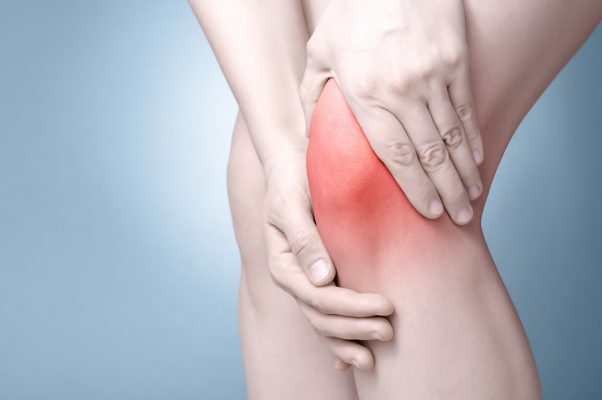
What causes arthritis pain?
The most common type of arthritis is osteoarthritis, caused by a breakdown of protective joint cartilage resulting in pain when bones move against each other directly. Also prevalent is rheumatoid arthritis, which happens when your immune system overreacts and attacks the synovium, or lining, of your joints.
Pain is the result when your damaged joint tissues release chemicals that activate your sensory nerves. Pain is acute or chronic, depending on its nature and duration. An arthritis flare resulting in more intense but shorter-lived discomfort is acute pain, whereas the ever-present ache from arthritis is chronic pain.
Why should I see a pain specialist?
Pain has different mechanisms of action which require different treatment, which is why a trained professional is your best choice to determine how to relieve arthritis pain.
Nociceptive pain is an immediate effect from a specific cause, such as that resulting from an injury. Pain relief that interrupts nerve signals works to relieve this type of pain.
Neuropathic pain is the result of the continuous firing of damaged nerve cells even after the original cause of the pain is no longer present. An example of this is a tingling sensation from damaged nerves. Nerve-specific treatments such as neurostimulation work best for neuropathic pain.
Can physical therapy help arthritis pain?
Physical therapy helps arthritis pain because it increases your range of motion as well as strengthens the muscles surrounding your joints. Increased circulation from motion nourishes your joints and stronger muscles help to stabilize areas such as your knees and back.
Your Physical Therapist can help in various ways such as teaching you proper posture and body mechanics, train you in the use of assistive devices such as canes, help you choose from different treatment options like braces or shoe inserts, and recommend environmental changes like ergonomic furniture. You will also learn exercises specific to your individual goals that you can perform at home.
How to relieve arthritis pain with medication
There are medications that can help with arthritis pain. Some, like analgesics, manage pain without reducing inflammation. Others, like nonsteroidal anti-inflammatory drugs (NSAIDs), reduce both pain and inflammation. Salicylates, a type of NSAID, can thin blood so require caution with their use. Topical applications such as creams containing menthol or capsaicin can also provide some relief.
Can supplements help with arthritis pain?
You may also want to try supplements to obtain arthritis symptom relief but consult your arthritis pain doctor first to ensure that there are no negative interactions with other treatments you may be having.
Ginger has anti-inflammatory properties similar to ibuprofen. Chondroitin sulfate is popular for osteoarthritis relief but studies assessing its efficacy have had mixed results. SAM-e provides pain relief and may stimulate cartilage growth. Turmeric/Curcurmin provides relief from inflammation by blocking cytokines.
Consult your doctor first because there are some supplements you should avoid when treating arthritis, such as 5-HTP, GBD, L-tryptophan and Kombucha tea.
How does weight loss help arthritis?
Weight loss to help arthritis works because it alleviates pressure on your joints and reduces your body’s inflammatory response.
Carrying excess weight increases the pressure on your knees and hips. This contributes to a more rapid depletion of joint cartilage leading to osteoarthritis arthritis symptoms. Rheumatoid arthritis can also result from excess weight because of the cytokines produced by fat tissue, which trigger the inflammatory process that damages the lining of your joints.
Are there medical treatments to relieve arthritis pain?
An experienced arthritis pain doctor can assess you to determine how to relieve arthritis pain in a way that is specific to your case. Evaluation by an experienced physician is important when considering medical treatments, and a dedicated pain specialist can help. Ask your family physician for a referral, if required, and help to find the best pain doctor New York for your case. Medical treatments include surgery and non-surgical options.
What are the non-surgical options?
Your knee and back pain doctor New Jersey can help you choose from a variety of non-surgical options to relieve your arthritis pain. Some of these options include injections, radiofrequency ablations and genicular nerve blocks.
Injections work by delivering anti-inflammatory and pain control medicine into areas such as the lumbar region, sacroiliac (SI) joints and knees. Genicular nerve blocks provide valuable diagnostic information as well as pain relief. Radiofrequency ablation uses electromagnetic waves to deliver heat energy to the pain signaling nerve endings along the spine. This pain relief lasts longer than that of nerve blocks or injection treatments.
When is surgery used for arthritis?
Surgery is used after non-surgical options haven’t worked. Procedures include total joint replacement, arthroscopy, hip resurfacing and osteotomy. Fortunately there are an abundance of non-surgical options available for you to try first.
The best treatment for pain requires the help of pain specialists who share your goal of how to relieve arthritis pain. An experienced physician must first assess the specific source of your pain and then can determine an effective course of treatment.






